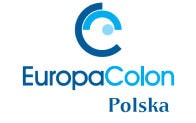Personalizing Colorectal Cancer Medicine (ImmuCol2)
NCT02274753
Observational
Unknown status
ImmuCol2
Colorectal cancers are the leading cancers for both sexes combined. They represent 15-20% of all cancers. This cancer has a severe prognosis, the survival rate at 5 years is around 55% and in France it is estimated, all colorectal cancers are responsible for an annual mortality of 15,000 patients. The prognosis of colon cancer knows no significant improvement. The treatment of colon cancer is surgical. It is intended for removal of colonic segment bearing the tumor with margins of healthy colon. The therapeutic attitude following the surgery is essentially driven by histopathology of the tumor. Adjuvant chemotherapy for all patients with localized stage II provides no benefit because the effectiveness of chemotherapy is limited and vulnerable to systemic toxicity. However, nearly 30% of patients with stage II disease will have a recurrence / metastasis. These patients could benefit from adjuvant chemotherapy. Intense research efforts have been made to identify markers predictive of relapse. Over thirty biological markers (eg. Mutations, deletions, chromosomal instability, ...) were highlighted. None of them has so far sufficient prognostic value (independent of TNM) to justify routine application in clinical practice in order to adapt the treatment of patients. The identification of new prognostic markers is a major issue for colorectal cancer. We showed that the intratumoral density memory T lymphocytes (CD45RO) and cytotoxic (CD8) strongly influenced the clinical outcome of patients. We have developed and validated a "immunoscore" technique intratumoral immune quantification and creates a platform to facilitate the clinical immuno transfer. We are currently conducting a large international retrospective study (22 centers,> 9000 patients) with promotion of cancer immunotherapy Company (SITC) to validate the method "immunoscore." At the same time, we are conducting a prospective multicenter study "ImmuCol" (National PHRC) to validate the prognostic value of "immunoscore" in colorectal cancer stage I-IV. The goal of inclusion has been achieved, as 420 patients were included for 18 months. Clinical follow-up will be 3 years after surgery. The program ImmuCol2 research takes advantage of the ImmuCol study to extend the investigation beyond the immunoscore to define the combination of interest, prognostic and theranostic parameters at diagnosis and during the clinical course patients with an objective of personalized medicine.
Mar 11,2015
All
18 Years
N/A
18 Years
N/A
220

